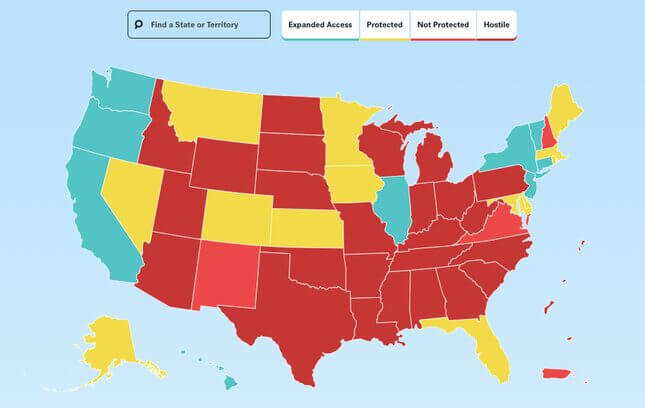Iowa Is a Rare Midwest Abortion Haven. The State Supreme Court Just Destroyed That.
The abortion access dominoes continue to fall, even before Roe v. Wade does.
AbortionPolitics

You would think there couldn’t be anything worse than the impending overturning of Roe v. Wade, which would lead to abortion being banned in about 20 states thanks to unenforced, pre-Roe bans and so-called “trigger laws” that only take effect after the landmark ruling falls. But we are here to report that there is something worse: The gutting of access in states that advocates were cautiously counting on to serve traveling patients in a post-Roe world.
Today, Iowa’s state supreme court gutted its own 2018 ruling that there is a “fundamental right” to abortion in the state’s constitution. It didn’t fully overturn that ruling, but rather said that it would no longer subject state abortion restrictions to the most rigorous legal test when deciding if they can take effect. In plain English: Today’s decision opens the door for the court to uphold future abortion restrictions and even outright bans, like the state’s six-week ban that’s been blocked since 2019.
Iowa is only a haven by comparison to some of the other states surrounding it. While it permits telemedicine abortions and doesn’t currently have a mandatory waiting period, it still has several restrictions, including a mandatory ultrasound law, a ban on Medicaid coverage of abortions, and a ban on abortions after 22 weeks of pregnancy.
-

-

-

-

-

-

-

-

-

-

-

-

-

-

-

-

-

-

-

-

-

-

-

-

-

-

-

-

-

-

-

-

-

-

-

-

-

-

-

-









































